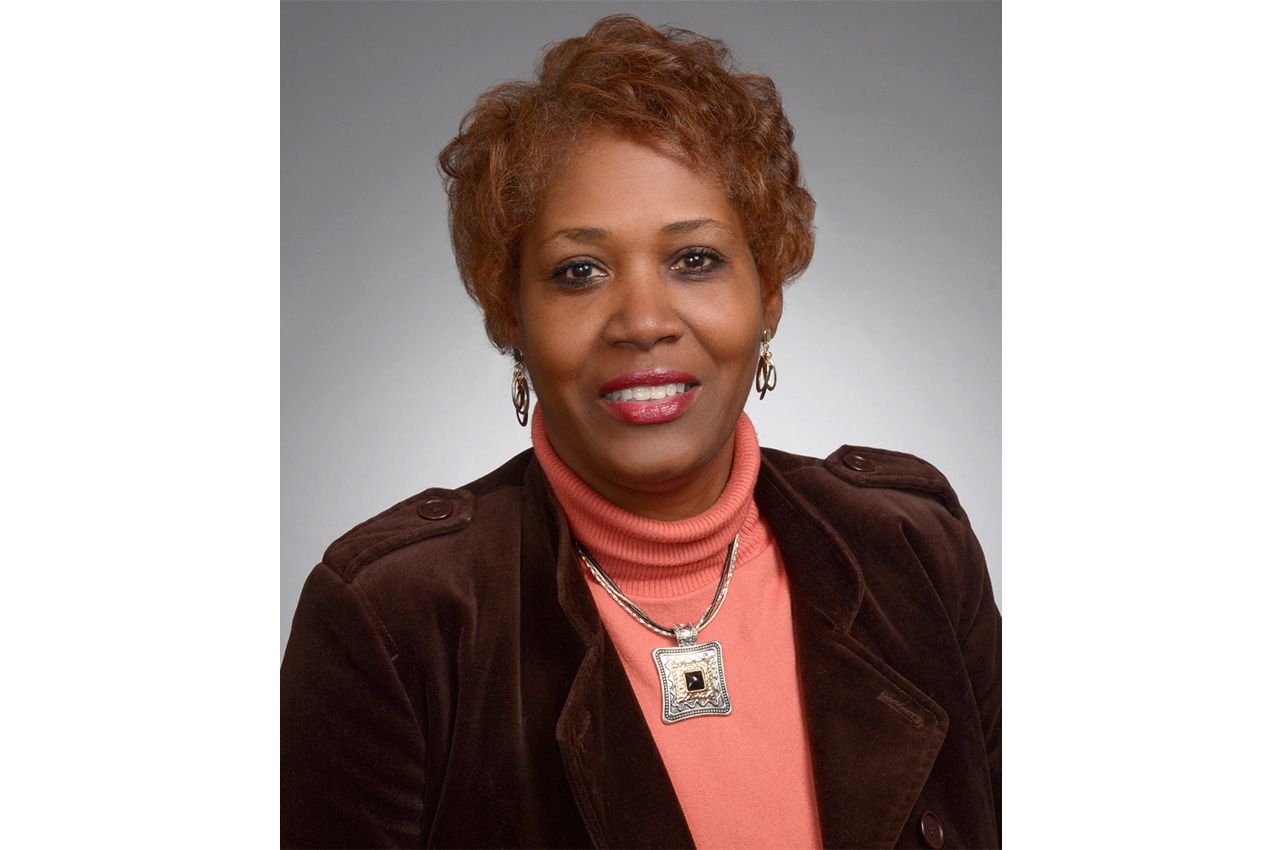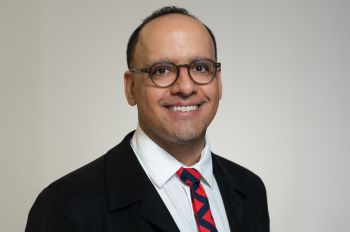Assistant Dean Marsha Ross-Jackson Offers Advice to Aspiring Lawyers in Book that Inspires African Americans to Join the Legal Profession

Marsha Ross-Jackson, assistant dean for student professional development, and head of the Office of Diversity and inclusion, Multicultural Affairs, and Professional Development at Chicago-Kent College of Law, shared her tips on navigating law school and professional life in a new book that seeks to inspire and encourage African Americans to become lawyers.
“Lessons from Successful African American Lawyers: Practical Wisdom for Those on the Path to Lawyerhood (Volume 1)” features the personal and professional stories of 55 successful Black lawyers from around the country who attended law school from 1970–2010 and pursued various career paths in the legal industry.
The book’s editor, attorney Evangeline M. Mitchell, said in a press release that because of historic educational, social, and economic barriers, aspiring Black lawyers often don’t have family members or friends in the legal field who can serve as mentors. Ross-Jackson hopes that readers will “see themselves in us and realize that if we were able to get into and survive law school, and become successful attorneys, they can too.”
“I hope aspiring lawyers will learn from our mistakes as well as our successes in overcoming obstacles, many of which have been systemic and difficult to expose,” Ross-Jackson says. “Finally, I hope this book inspires more students of color to realize that Black Lawyers Matter, and that they are needed in this profession in order to ensure that Black Lives Matter.”
Ross-Jackson grew up on Chicago’s South Side and graduated from Percy L. Julian High School. She majored in biology and originally wanted to be a doctor, but toward the end of her junior year at Hampton University, she realized it was not the career path that she wanted. After graduation Ross-Jackson was hired by the City of Chicago Police Department Crime Laboratory as a criminalist, and she was often called upon to provide expert witness testimony on drug cases.
“While being prepped by attorneys for my expert witness testimony, I often found myself advising attorneys on the best ways for me to offer testimony. It became increasingly clear to me that I had the passion and ability to practice law,” she writes in the book. “I had never even considered the possibility of law prior to that experience.”
Before applying to law school, Ross-Jackson earned her master’s degree in public administration and taught English as a Second Language. She continued to work full-time as a criminalist while taking evening classes at DePaul University College of Law. Ross-Jackson graduated in the top 10 percent of her class and started her career as an associate at Lord, Bissell & Brook (now Locke Lord LLP). She joined Chicago-Kent in 2012 and among her many roles serves as the executive director of the Institute for Law and the Workplace and the director of Chicago-Kent’s Pre-Law Undergraduate Scholars Program, a three-week summer program designed to introduce students from underrepresented backgrounds to the rigors of law school.
“Marsha Ross-Jackson has dedicated her career to mentoring the next generation of diverse lawyers, and it’s wonderful that her voice and life lessons are included in this book,” says Chicago-Kent Dean Anita K. Krug. “This book is so vital at this moment in history as we look to build racial equity in all areas of society.”
In her chapter of the book, Ross-Jackson writes that preparation for law school should begin as early as possible. Students in middle school and high school should get involved in school and community organizations, take on leadership roles, and explore opportunities to write, speak, and analyze problems. In college, she recommends that students should choose an undergraduate major based on their interests because if they are engaged with their coursework, they will likely perform better academically. Ross-Jackson notes that regarding the law school application process, good grades are “often more important than choosing traditional law school feeder majors like history, political science or English.” She says that picking a major students are passionate about also opens up other desirable career options should they decide not to practice law; a law degree could complement their undergraduate degree in ways that make them more competitive in another industry.
During law school, Ross-Jackson says that students should jump on opportunities to build their legal knowledge and lawyering skills even if it’s not their dream job. As long as “you are continuing to grow and learn you are making progress toward your goals. In other words, focus on what you can learn from the job and not the job itself.” Ross-Jackson also strongly encourages students to take a bar prep course because the curriculum and class assignments provide the best framework for success.
Ross-Jackson’s top advice to Black law students and lawyers for overcoming the additional challenges they face is to “know your value, know your job, and know yourself.” She recommends that they talk to other Black law students and lawyers and read about their experiences to understand the challenges they have faced, which will help them to reflect on their response if faced with similar challenges. Ross-Jackson said it’s also critical for Black lawyers to use their voices to create change, otherwise it won’t happen.
“If your voice is absent, so are you and the people you serve,” she says. “Don’t allow anyone or anything to cancel your existence.”



